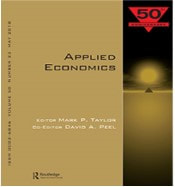
The authors say they use a unique data set comprising of universities who added or eliminated football in the 20 year period to 2015.
The findings are impressive in themselves. However, when I read the paper, I was looking for the causal model linking the institution's decision on football with the students' decisions on applications. When conducting a balanced review of the literature the authors suggest media exposure could play a role. Later they discuss the possibility that college football brings economic benefits to surrounding community and the possibility that football provides "students with an outlet for garnering extra-curricular benefits".
I'm hampered by my lack of knowledge of the US system to make a full judgement on the paper. However, it is the latest in a line of literature that raises all sorts of interesting questions. There are questions surrounding the role of sport in academic institutions. There are questions about the extent to which sporting success provides information to potential students. And, there are questions about what goes on in the mind of a student where the college football programme is the deciding factor. Are their decisions the based on careful consideration of all the alternatives or some rule-of-thumb they have acquired?
 RSS Feed
RSS Feed